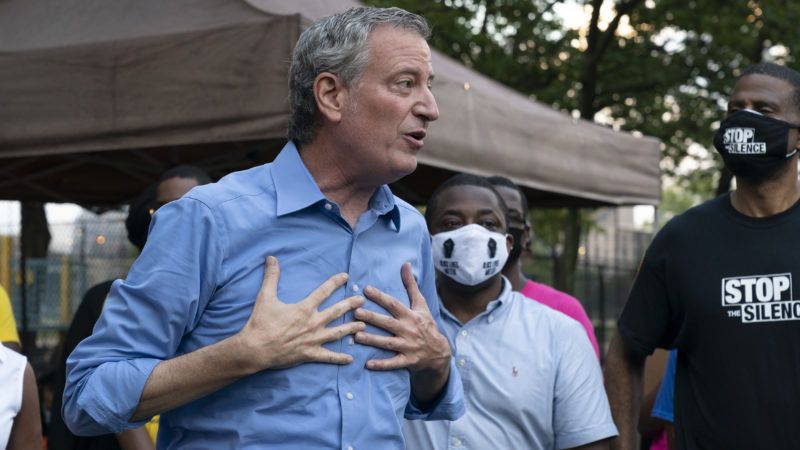The Media Wants To Guilt-Trip Parents Over School 'Pods'
Worried about how the latest COVID-19 workaround might exacerbate inequality? Maybe open the damned elementary schools instead.

Even before the recent unpleasantness, I have long read The New York Times, at least in part, as an exercise in making upper-middle-class liberals feel guilty about their consumer choices. Those convenient Amazon deliveries? Packaged by exploited laborers. Those cheap manicures? Given by nearly indentured immigrants. (Except not.)
So it does not surprise me that the Times is reacting to the latest creative workaround to dysfunctional governmental coronavirus response—parent-organized teaching pools, or "pods," whereby a small group of kids can receive instruction and supervision for the many days this fall that schools are not in session—with a triple helping of guilt.
"Given that pods can be pricey, complicated to organize and self-selecting," cautions the paper's Melinda Wenner Moyer in an explainer this week, "they are likely to be most popular among families of privilege, experts say, and may worsen educational inequality."
Yesterday, the Gray Lady rolled out a new education podcast with the sardonic title of "Nice White Parents," whose thesis is that, "If you want to understand what's wrong with our public education system, you have to look at what is arguably the most powerful force in our schools: White parents."
And on the Opinion page, educator Clara Totenberg Green makes it even more explicit: "At a time when the Black Lives Matter movement has prompted a national reckoning with white supremacy, white parents are again ignoring racial and class inequality when it comes to educating their children," she writes. "As a result, they are actively replicating the systems that many of them say they want to dismantle."
To those not fluent in contemporary education politics, such race-based insults may seem like an odd way to persuade stressed-out parents about the best personal and policy choices come this coronavirus-compromised fall. But progressive school activists and bureaucrats have grown so reliant on the R-word when pushing through controversial reforms that they keep reaching for the club even when they are as bewildered as pod parents are about what the hell to do with kids this September.
"Many will read this article and ask what they're supposed to do instead. I don't have the answer," Green confesses late in her piece. Still, the important thing is to feel bad: "They must understand that every choice they make in their child's education, even the seemingly benign, has the potential to perpetuate racial inequities rooted in white supremacy."
Moyer at least offers some tentative ideas about offsets. Parents could invite and subsidize underprivileged kids, though that, too, may "create friction." They could also hire a teacher/tutor "who is Black, Indigenous or a person of color (B.I.P.O.C.), and [ask] them to implement a social justice-themed curriculum." Whatever the offering (and cost thereof), it's important to not withhold any monies from your sub-functional local school.
"Parents starting pods should ask their school administrators how their departure will affect both short-term and long-term school funding, [sociologist Jessica] Calarco said, and ideally donate any lost funds to the school through the P.T.A. or a school foundation," Moyer wrote.
Well, that's one way of looking at it. Another one is maybe OPEN UP THE DAMN ELEMENTARY SCHOOLS ALREADY. At least in places, such as the northeast, where the virus is largely in check.
Only 16 children between the ages of 5 and 14 have died from the coronavirus in the United States, according to the Centers for Disease Control and Prevention; they were three times as likely since February to die from the flu, five times as likely to die of pneumonia.
Study after study has shown that kids 10 and under rarely contract, get sick from, or transmit COVID-19. One leading British epidemiologist told The Times of London this week that there is no known case in the world of a student transmitting the disease to a teacher. Given the hard lessons learned this spring—Zoom learning and cabin fever is no way to manage the time of elementary-age children—school districts in non–hot zones should be bending all their will toward preparing a full fall reopening for willing families.
But they aren't. New York Mayor Bill de Blasio said this week that public schools will open around half-time this fall, and that he won't make a final decision until September. Despite some pretty vigorous pushback in—yes!—The New York Times, the failed presidential candidate has demonstrated more interest recently in quoting Karl Marx than solving the number one anxiety of hundreds of thousands of his constituents.
So maybe, given de Blasio's own predilections for using "racism" as a weapon in education-policy disputes, I should just give in to the guilt-trip, and suggest in my OUTSIDE VOICE that my family's tentative plan to organize a pod among our kindergartner's classmates is an atavistic yawp of maintaining white privilege or whatnot. Whatever works, right?
Well, no. At some point, we need to have adult conversations about education policy in New York and elsewhere that don't immediately default to the single most incendiary topic in American life. Parents are podding up not because they want to separate their children from people who don't look like them, but because the damn schools aren't open, and they would rather eat razor blades than experience another season like this spring.


Show Comments (163)